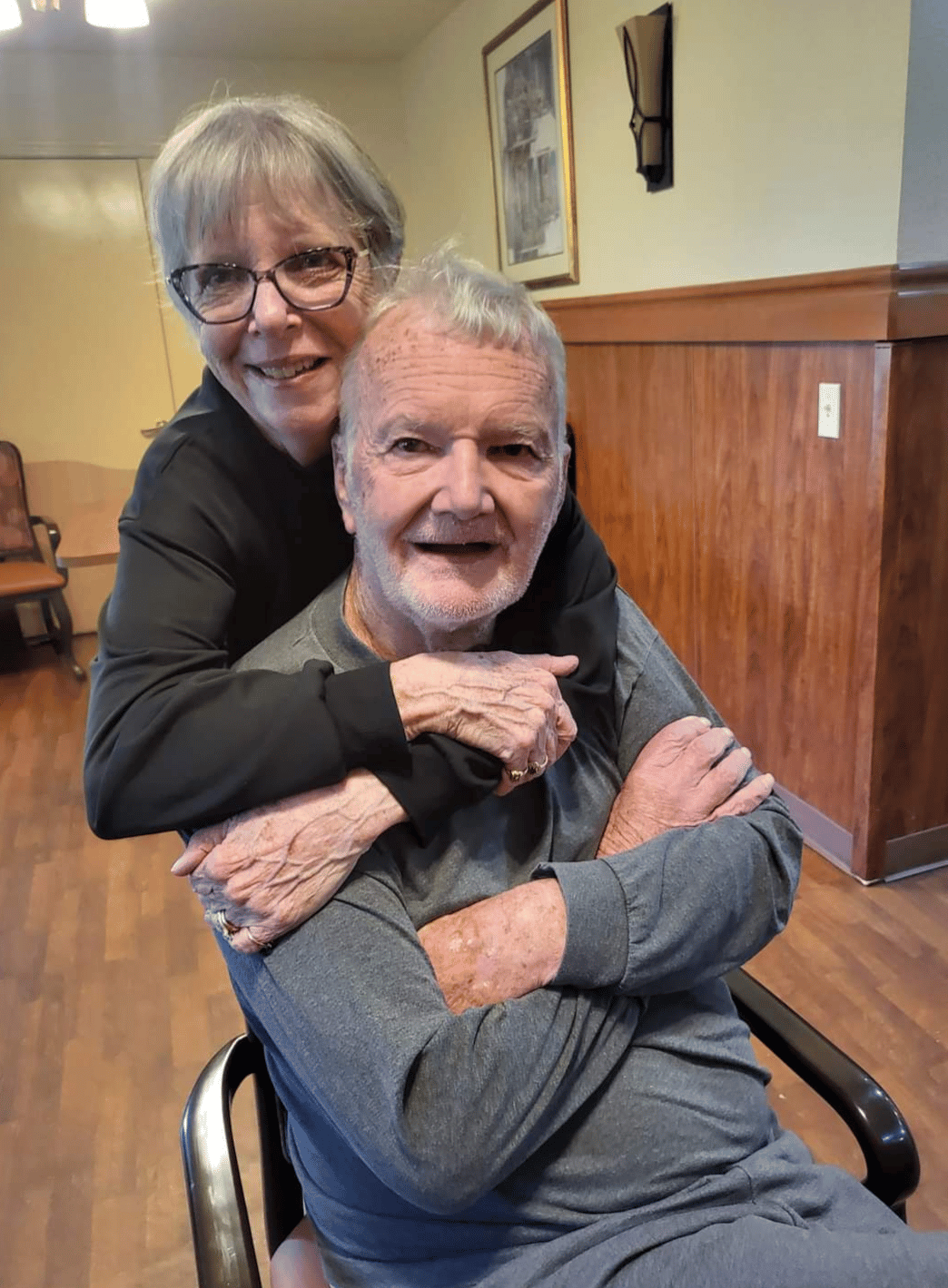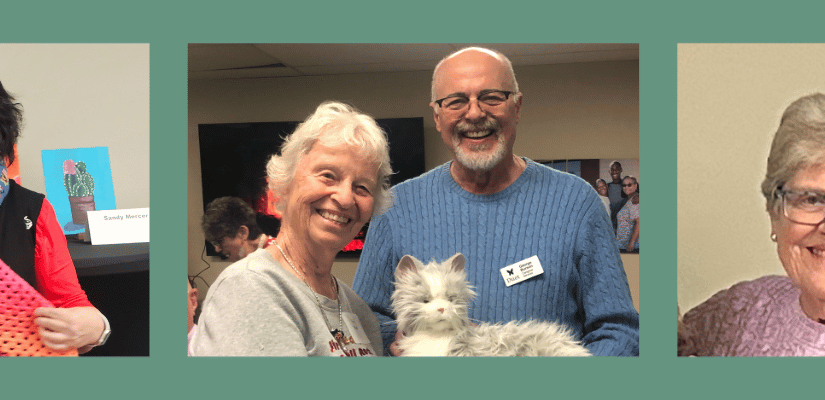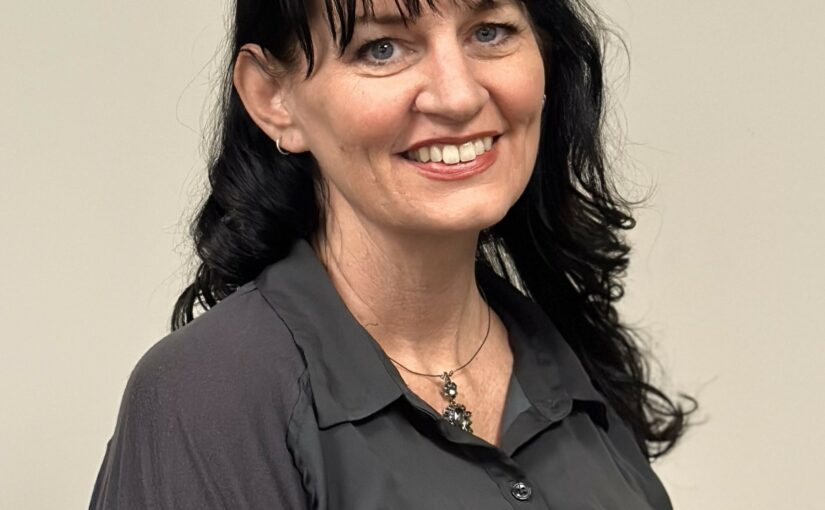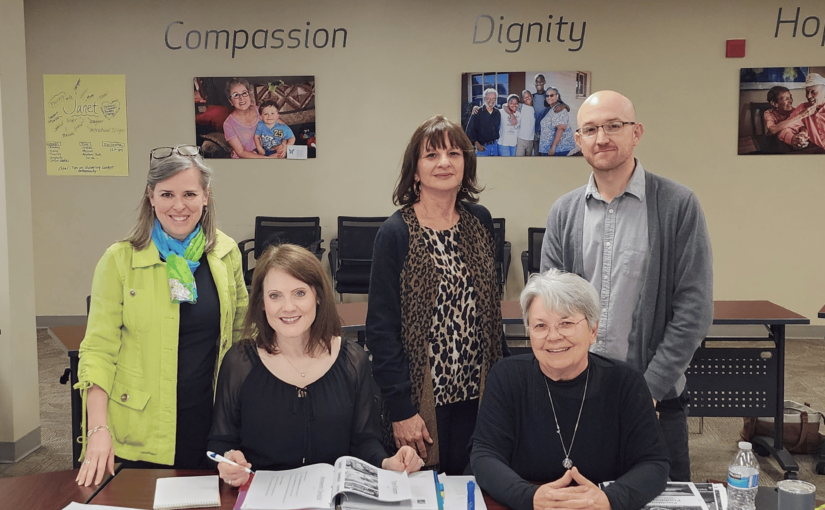
Family caregiver, Judy Hunter, shares why Duet family caregiver support groups are so important for caregivers: “There are people hurting the same way [as you] and they need your support.”
Caregiving: The Hug that Transcends Disease
Duet Support Groups Equip Family Caregivers
What is caregiving? For most people, it’s simply helping a loved one with physical, emotional, or medical needs when they can’t care for themselves due to illness, disability, or aging. Family caregiver, Judy Hunter, doesn’t make that distinction. She says, “Caregiving didn’t just start when he [her husband] was diagnosed with Alzheimer’s. We’ve been caregiving for each other for over 56 and a half years.” Judy adds, “When you’re married to someone that long, you care for them every day, even when you’re not in this situation.”
Judy met Charles on a blind date when she was 17 years old. Together they embody the model of a deeply committed and enduring partnership. Loveland, Colorado, was their home for 28 years before moving to Phoenix in 2019, when Charles’ health began to decline. At a towering height of 6’2”, Charles is a big guy. However, as his cognitive challenges gradually increased due to the progression of the Alzheimer’s disease, Judy began to fear she wouldn’t be able to help him physically if he were to fall. She found safe haven for him at Huger Mercy Living Center in central Phoenix.
With Charles’ physical needs met, Judy could concentrate on helping him through the emotional trials of Alzheimer’s. As thoughts gradually fragmented and shared conversations declined, Judy found that hugs could transcend the diagnosis. “There’s not a lot of communication because he gets confused.” She found that expressing her love and care through hugs became a powerful means of communication, even when verbal communication became limited. So, she became more intentional in giving him hugs as a means of silently conveying her love and care. “I just recently decided it really feels good to give them, but it really feels good when he hugs me back.”
Despite the care afforded to Charles by the assisted living facility, it became clear to Judy that it was taking an emotional toll on her as well. Charles’ hugs were no longer enough. As a former administrative assistant, she had a natural sense of her own limitations, but she also realized she couldn’t do it alone. “I know what I can handle, and I know when I need to take care of myself.” She continues, “Another major part about this disease is the caretaker needs to be taken care of also.”
She sought help for herself. “There was a time I would be overwhelmed just to change the sheets on my bed. It’s a king-sized bed, and it took everything I had to change the sheets.” She learned about Duet’s family caregiver support groups in passing from a fellow caregiver of a resident at Huger Mercy Living Center. “Duet is the best thing I ever did in my life.” She adds, “You probably wouldn’t know that I am an introvert—I don’t do well in crowds—I am just truly grateful [for my group] and to not to have to go to a psychiatrist and pay $150 an hour so they can tell me to ‘take deep breaths.’”
United by their challenges, Judy loves her Duet support group and has discovered strength through the commonalities shared with other caregivers facing similar challenges. “Being in that support group has opened my eyes more to my husband’s abilities and what he [should] be doing at his level and it really has helped.” She wants others to know that “without Duet and my support group, I think I would be having more trouble—it’s been a saving grace for me.”
Support groups are a safe place to share circumstances and learn what to expect as Alzheimer’s progresses. For Judy, her faith is strong, and she believes the caregiving journey with Charles is a means to personal growth that she can now share with others. “It is [one of] the best things I ever did in my life.” She adds, “I keep thinking that we’re in the palm of God’s hands and you don’t have control of it…but God sent me to Duet.” Judy wants everyone to know about Duet. “There are people hurting the same way [as you] and they need your support.”
June is National Alzheimer’s and Brain Awareness Month. If you’ve ever been charged with caring for a family member with Alzheimer’s—be it a child, parent, sibling with disabilities, or spouse—you understand how taxing caregiving throughout a day can be. Caregivers need support, both emotionally and physically, to prevent burnout and maintain their own well-being. Duet’s diversified family caregiver support groups—including general and specialty such as Spanish language, Alzheimer’s, Parkinson’s, LGBTQ+, caring for parents, and grief—meet monthly both virtually and in-person and offer a valuable resource for caregivers to find emotional support, helpful resources, tips, and guidance to navigate the challenging journey of caregiving. To learn more, please visit duetaz.org/support-groups/ or contact Duet Family Caregiver Services at (602) 274-5022.
By sharing her story at a Duet support group and embracing the power of a hug, Judy reminds us of the profound impact that compassion and human connection can have on the lives of those we care for and our own well-being.


